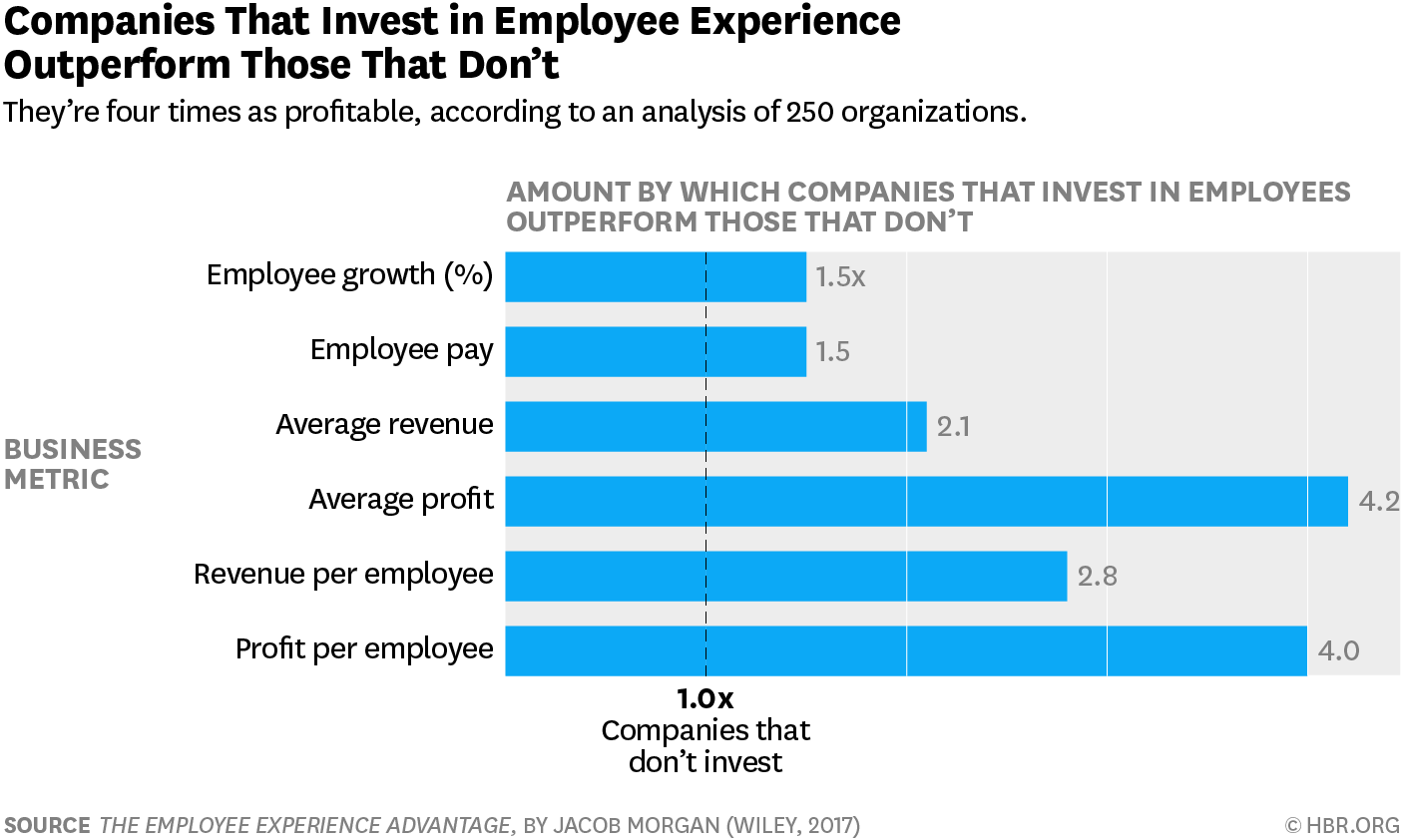Why focus on employee experience?
The best investment you can make is the one you make for your employees. Employees who feel well perform better and that is something that no company can overlook. However, finding the reason to put in time and effort can be difficult. In this article, we discuss the facts why should focus on employee experience as it can help you to increase employee attraction, motivation, and retention in your company.
We have also created a handy infographic on the larger-scale benefits for your company.
1. Focus on employee experience helps you with employee retention
During challenging times, in the midst of a pandemic and potential furloughs in your company, it’s important to focus on your employees first. Brianna Mark, Employee Experience and Events Manager at Mozilla states that “it is important to create an employee first culture, not the office first culture, no matter where you show up (regards your physical location)”.
The employees have turned into the consumers of the workplace, meaning that they are no longer satisfied with just a paycheck. The workforce, especially millennials, is looking for more than just that. While the millennials have been accused of being job-hoppers, according to Gallup they are as engaged as every other worker. However, in contrast to all other workers, they are more demanding of having a place where they have opportunities to grow, have a sense of purpose, the workplace has high-quality management and there is a chance of advancement.
According to Gallup’s research, 63% of employees believe it is “very likely” or “somewhat likely” that they could find a job as good as the one they have, and 51% of currently employed workers say that they are actively looking for a new job. These figures tell that to retain your existing workforce you need to focus on the experience you provide to them, to avoid job switching.
In addition, it has been shown that organizations who invest the most in the whole experience, are finding that they are 5 times more likely to appear in Glassdoor’s Best Places to Work list. This was especially noticed during the pandemic, as elements for creating a good employee experience were recognized by the employees as good practices and common themes between succeeding organizations.
2. Attract better talents
Every business leader wants the best employees to work for them. However, this can be difficult if the employee experience and employee value proposition are not well thought out. In addition, to stay competitive in the war of talent means that you need to adjust your offering. Making your offering magnetic to the talent in your market drives great results, as the companies who focus on employee experience are over 4 times more often listed as the most in-demand employers by LinkedIn.
When you create a greater employee experience, it increases employee engagement which as a side effect creates a positive cycle of your engaged employees voicing their feelings about your company and sharing your content. Winning company culture has employees who can openly and genuinely speak about your company as a great place to work. This can improve your employer’s branding and image, creating a demand for better talent for your company.
3. Increases your revenue and profit
According to research by Jacob Morgan, companies that invest in Employee Experience outperform those that don’t. This includes variables like employee growth and employee pay but most importantly it has a great effect on the financial data. This is important to promote the benefits of the investment you make into the experience and helps you get your board, CFO, or other directors to get on board with this initiative, as you can show them concrete numeric evidence.

In comparison to the companies who do not invest in this, the ones who invested in the employee experience showed more than two times the average revenue and more than four times the average profit!
Morgan states in his research that it’s clear that there is a significant return to organizations who focus on employee experience over the long term, rather than doing small employee engagement actions randomly.
Conclusion
Whether you want to have an impact on who you have working for you, or you want to drive the bottom line while simultaneously increasing employees’ well-being, putting the focus on employee experience is a great way to do it. It is something that should be done by listening to your employees, and step-by-step to make it better. When done in a genuine, you can reap great benefits from it!
It is important to create an employee first culture, not an office first culture, no matter where you show up
Brianna Mark, Employee Experience & Events Manager at Mozilla


